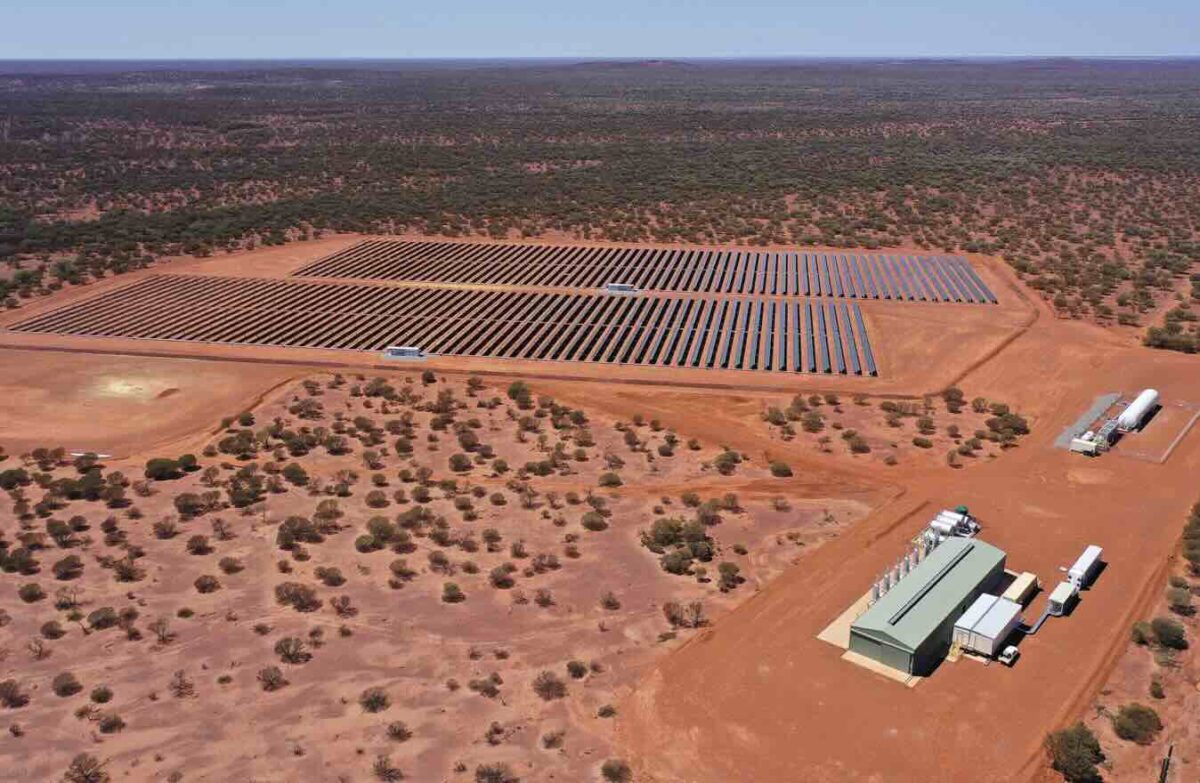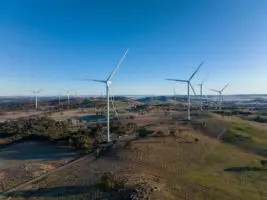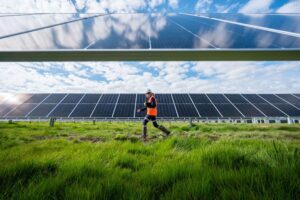A mineral sands mining company expects to save five million litres of diesel a year by adding a solar farm and a battery storage system to its remote titanium mine site in western NSW.
The Atlas–Campaspe mineral sands mine owned and operated by Tronox near Hatfield, has contracted Pacific Energy to design and deliver a new hybrid power system that will include an an 11MW solar farm, a 3MW/6MWh battery energy storage system. and a 12MW diesel generator.
The project will also include 13 kilometres of high-voltage power lines, and the number of diesel generators will be reduced from the 41 that currently power the Atlas–Campaspe mineral sands mine to just six.
The system includes a “hydrocarbons-off” functionality that will enable the mine to be run solely on renewable energy when solar power production outweighs mine site load – which Pacific Energy expects will be most days.
That being said, the hybrid system’s renewable energy component is only expected to provide up to 40% of the mine site’s total power supply, and will reduce Tronox’s annual carbon emissions by around 13,000 tonnes and its diesel usage by nearly five million litres each year.
Pacific Energy has also included provision for larger amounts of renewable and thermal energy sources within the project’s plans to meet the planned expansion of operations at the mine.
“By consolidating Tronox’s existing power supply, we can reduce its 41 existing diesel generators down to just six, not only reducing its fossil fuel consumption and the associated scope one emissions, but also operations and maintenance costs,” said Jamie Cullen, CEO of Pacific Energy.
The agreement with Tronox also marks the first energy system build by the Perth-based Pacific Energy in the eastern states, and comes as it announces a new division, Pacific Energy Connected, which will be headquartered in Melbourne and aimed at meeting the growing demand for clean energy solutions.
It will be headed by Mark Sinclair, and will leverage and expand on its parent company’s full-service delivery model to support hydrogen projects around the country, while also delivering standalone power systems, battery storage systems, and renewable energy microgrids to the main grid and isolated east coast networks.










